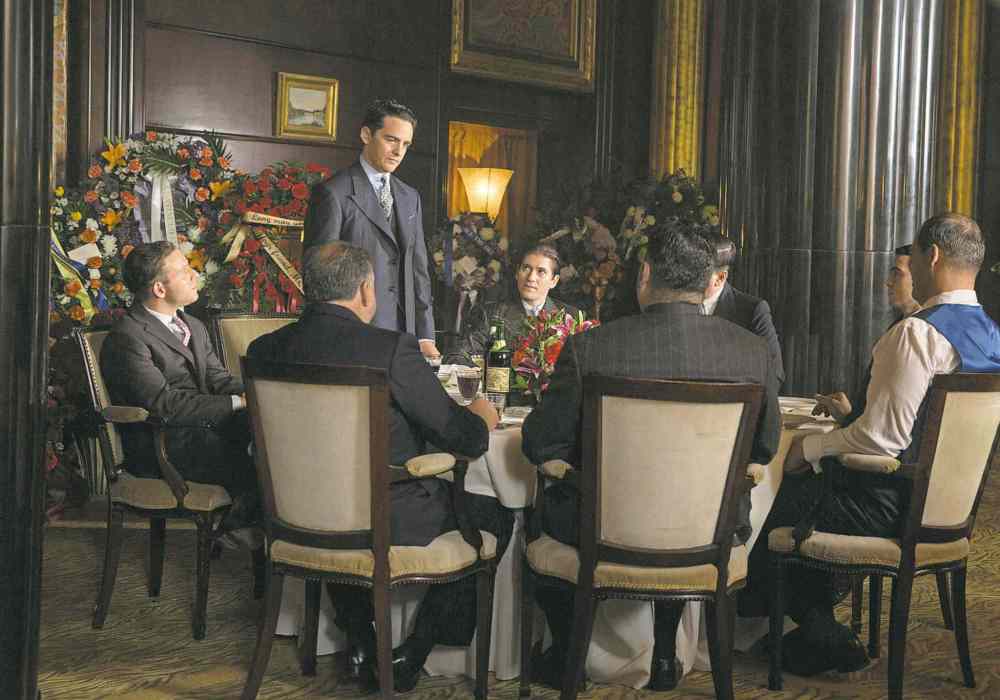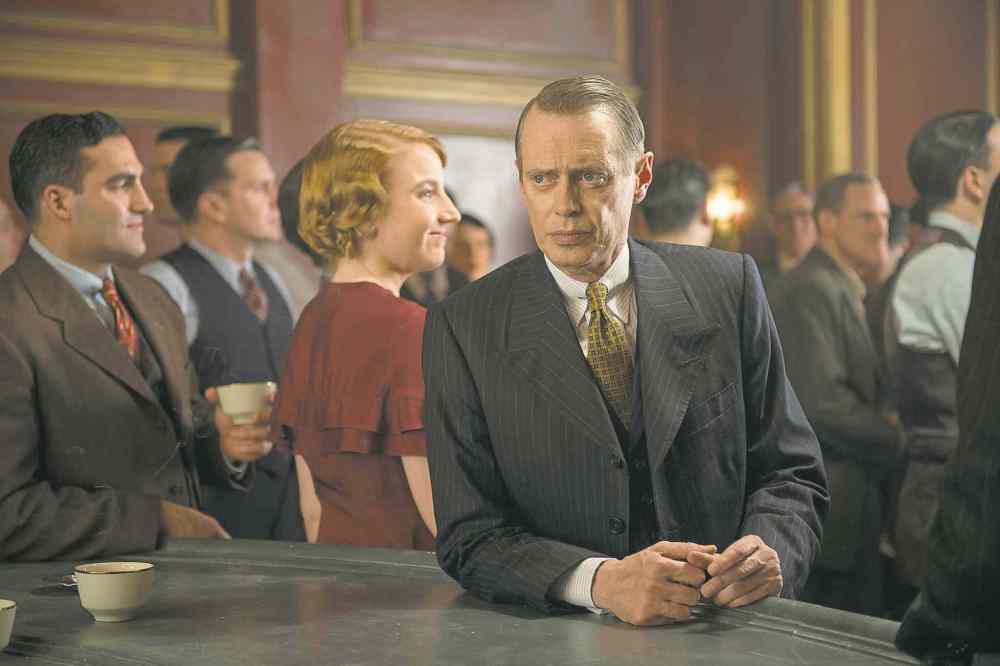Boardwalk Empire delivers beautiful exit
HBO show's fifth and final season might be its best
Advertisement
Read this article for free:
or
Already have an account? Log in here »
To continue reading, please subscribe:
Monthly Digital Subscription
$0 for the first 4 weeks*
- Enjoy unlimited reading on winnipegfreepress.com
- Read the E-Edition, our digital replica newspaper
- Access News Break, our award-winning app
- Play interactive puzzles
*No charge for 4 weeks then price increases to the regular rate of $19.95 plus GST every four weeks. Offer available to new and qualified returning subscribers only. Cancel any time.
Monthly Digital Subscription
$4.99/week*
- Enjoy unlimited reading on winnipegfreepress.com
- Read the E-Edition, our digital replica newspaper
- Access News Break, our award-winning app
- Play interactive puzzles
*Billed as $19.95 plus GST every four weeks. Cancel any time.
To continue reading, please subscribe:
Add Free Press access to your Brandon Sun subscription for only an additional
$1 for the first 4 weeks*
*Your next subscription payment will increase by $1.00 and you will be charged $16.99 plus GST for four weeks. After four weeks, your payment will increase to $23.99 plus GST every four weeks.
Read unlimited articles for free today:
or
Already have an account? Log in here »
Hey there, time traveller!
This article was published 26/10/2014 (4093 days ago), so information in it may no longer be current.
IN the talk about how television has improved over the past two decades, viewers often forget to credit a slight shift in industry etiquette that made cancellation a kinder, more creative process — at least in some cases.
Good manners can make good TV series, and it’s hard to think of anything more respectful than giving a show runner one last season, even after the buzz has faded to a distant hum, to wrap his or her story up definitively and artistically. It’s a kindness that rarely involves the word “cancelled.”
Nothing’s cancelled anymore, even when it is. Though the practice is increasingly common on broadcast networks (Parenthood, Parks and Recreation and The Mentalist are all being gently concluded rather than taken out back and shot), premium cable networks have become the real experts at these end-of-life “final season” rituals, because they can afford to extend the favour.

The noble-death thing is not always successful. It depends on the attitude of the show’s producers, writers and cast: Will “the end” become a forced march of contractual obligation, or will the show take this opportunity to outdo its best work? A couple of recent examples of squandered epilogues would include the final seasons of HBO’s True Blood, which took the chicken-without-a-head approach, and the network’s New Orleans drama, Treme, which acquiesced to its more sentimental impulses instead of departing on a surprising or even memorable note.
Boardwalk Empire, Terence Winter’s consistently downbeat yet exquisite attempt to fictionalize the rise of organized crime during Prohibition, will conclude its fifth and final season tonight on HBO and HBO Canada.
(Here’s the usual spoiler alert: If you’re not caught up through last Sunday’s episode, be warned I’ll be making some specific references to what’s happened.)
The network gave Winter and his colleagues — a long list of top-tier writers/producers that includes Howard Korder and directors such as Martin Scorsese, Tim Van Patten and Allen Coulter — just eight episodes to braid the loose ends together and wrap up a story that has slowly grown to epic proportions, all of it in grand orbit around Steve Buscemi’s unforgettable performance as Enoch “Nucky” Thompson.
Rather than blow off excess steam and merely deliver a body count, the writing and acting in Season 5’s episodes have surpassed Boardwalk Empire’s usual high standards, offering a pitch-perfect conclusion to a story that is surprisingly human in a world that’s been intentionally strewn with subhuman behaviour.
After using the context of actual crime history (Al Capone, Lucky Luciano, Meyer Lansky) to expand its tale from Atlantic City to Chicago, New York, Florida and even Cuba, Boardwalk Empire has now retracted to what it perhaps always meant to be: a rumination on the state of Nucky’s soul.
c_
That’s not to say Boardwalk Empire looks as if it intends to end on a sappy note; it’s also had plenty of what both the casual and devoted viewer expect: Lots of people have been shot in the head, the neck, the chest. So long, then, to Nelson Van Alden/George Mueller (Michael Shannon), Chalky White (Michael Kenneth Williams), Mickey Doyle (Paul Sparks) and Sally Wheet (Patricia Arquette). It goes without saying Boardwalk Empire was a relentlessly violent show, befitting its genre.
It was also macho. This didn’t mean the show was necessarily misogynist (and when it was, it could fall back on historical precedent as an excuse) or without female fans (I happen to know many women who’ve followed each season faithfully), but it does mean the show asked viewers to care primarily about the men portrayed in it.
The women of Boardwalk Empire, most notably Gretchen Mol and Kelly Macdonald, gave superb performances when called upon to do so, yet were never given the prominence they should have had.
While we’re on the subject of manliness, there was Winters’s resolute choice for Boardwalk Empire’s theme song, a bluesy 1990s instrumental riff from a band called the Brian Jonestown Massacre, which struck many as a strangely anachronistic way to open a show that lavished attention on its 1920s period details. I found the theme song to be sonically and almost unbearably masculine, like the music from ads for erectile-dysfunction pills. It’s a sound I will forever equate with the concentration Boardwalk Empire demanded of its viewers, asking them to follow along as a parade of nearly indistinguishable thugs and crime bosses in suits rushed past.
Boardwalk Empire was a hard sell. There was seldom anyone to root for, fully — especially after the death of its best and most compelling character, Richard Harrow (Jack Huston), a facially disfigured First World War veteran who took up, and then tried to turn away from, the coldness of criminal life.
I half-expect to be hearing from readers years from now who will discover Boardwalk Empire in hindsight and set out to “inform” the rest of us of about it, long after we begged them to watch. Politely, we’ll have to tell them: Just wait until you get to the last season. In some ways, it’s the best.

— Washington Post


